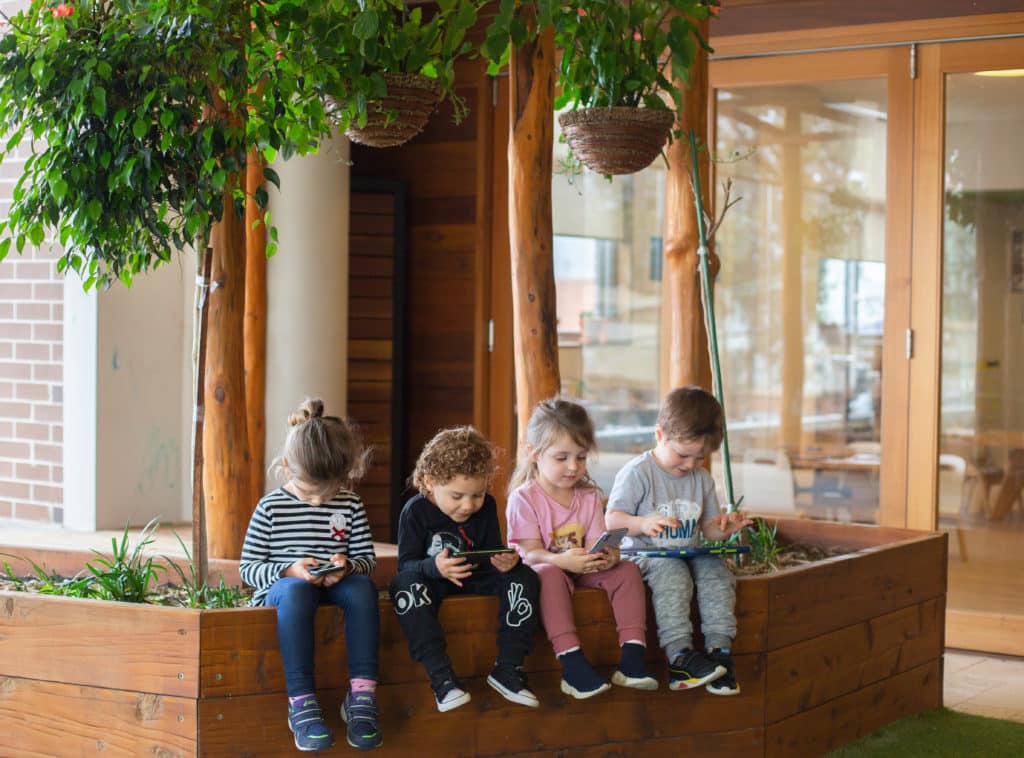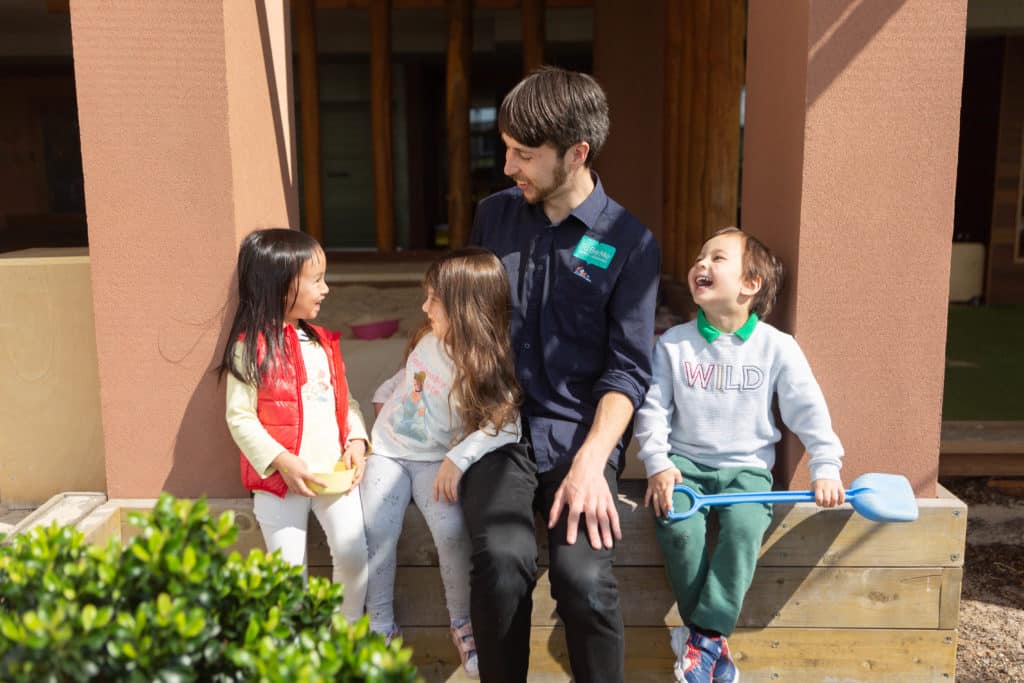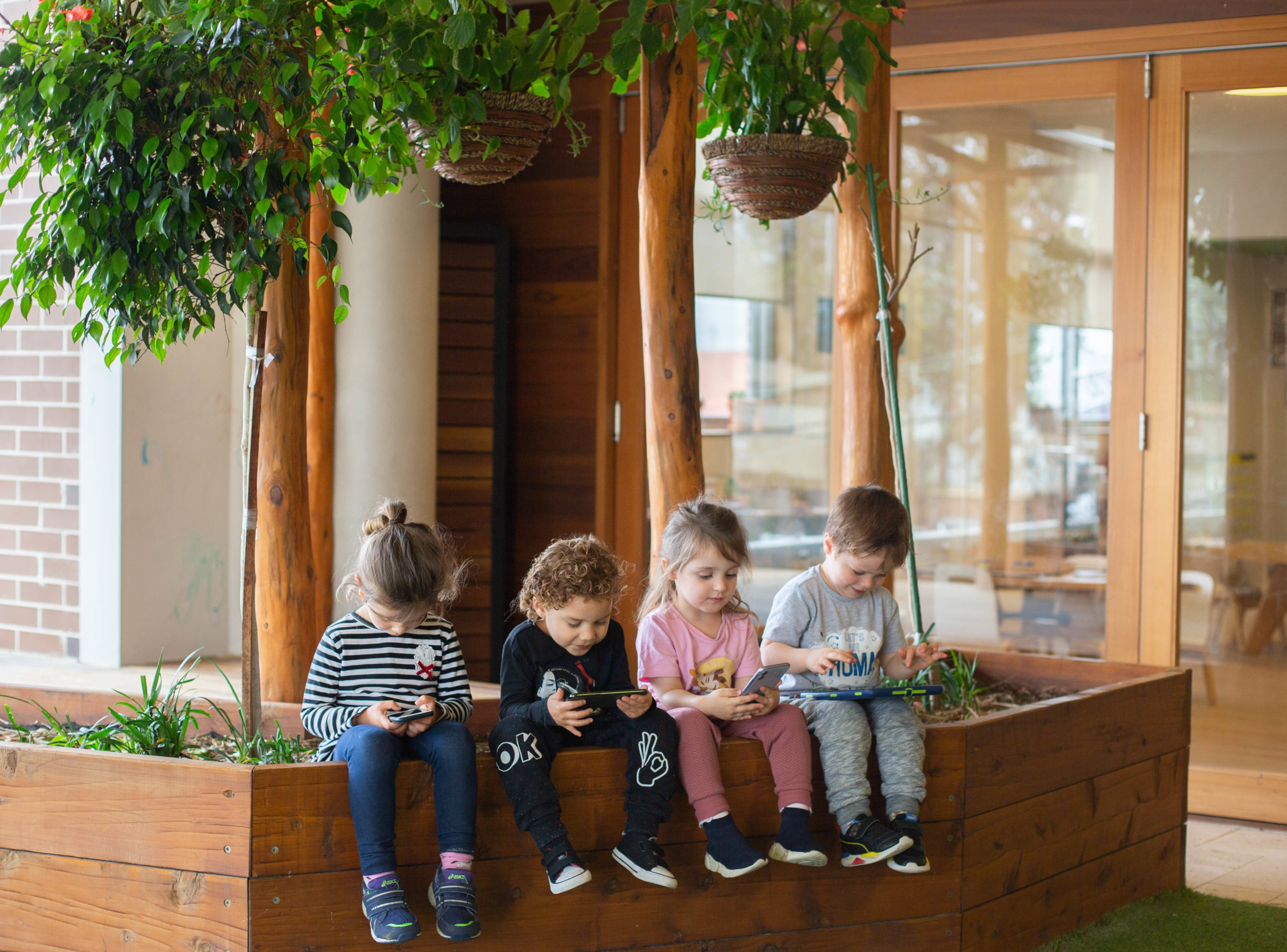One of the key concerns of most parents is the amount of time their children spend being exposed to social media via smartphones, tablets, and other electronic devices.
In light of the recent attention that social media has been given through various documentaries such as “The Social Dilemma” and “The Great Hack”, we take a deeper look into some of the concerns and considerations of the impact on our Children.
It is most vital to communicate and raise awareness of the consequences of extended social media use and screen time exposure, especially for young Children.

Numerous studies as well as advice from paediatricians have displayed the adverse effects of too much media exposure. Recent data from a 2018 study by the National Institutes of Health (NIH) indicated that Children who spent more than two hours a day on screen-time scored lower on language and thinking tests. Other Children with more than seven hours a day of screen time experienced thinning of the brain’s cortex, the area of the brain related to critical thinking and reasoning.
The question lies in what are the consequences, and what should we be doing to avoid these developmental concerns?
Decreased Sensory Stimulation.
Children aged 0-6, naturally learn from the environment they’re in. Physically moving, crawling, touching, feeling or walking around and exploring, is the way they interact with the world around them, which is fundamental to their growth.
Hence, why we place a large emphasis on nurturing Physical Connection; by giving Children the opportunity to participate in physical experiences such as yoga, team sports and daily gym time with a personal coach, as well as inspiring learning experiences.
By contrast, if a Child is engaged in screen time they are in a passive state.
They are sensory-deprived, and their brain development is reduced significantly in comparison to those whose senses are stimulated directly from their environment.

Weakening of Communication and Social Skills
Screen time inhibits the development of communication and social skills within Children.
Being idle for two hours or more sitting on the couch with images and suggestions directly implanted into Children’s minds is referred to as “viewer passivity”. This takes place when there is no participation or interaction with the surrounding environment.
For instance, social media platforms such as Tik Tok and Instagram, have infinite scroll features, meaning that the newsfeed will always display new and relevant content to keep the user engaged for hours in a “passive state”.
Furthermore, television playing in the background significantly reduces parents’ interaction with their Children. Studies have recently found that parents minimally interact with their Children saying only about 200 words compared to 1000 words per hour when the TV is off.
“The more time we spend in default mode, the more risks of dementia, attention deficit, anxiety, and depression.” – Dr Amit Sood
In order to enhance communication and social skills, we encourage our Children to work in a group context, enjoying the company of their peers and Educators.
We often notice that once Children have mastered the Social Connection, they begin to take leadership in a variety of scenarios and their confidence continues to grow.
This ability to listen, understand, connect and work with others is invaluable to their development and must be fostered every day.

Increased Risk of Attention Deficit
Young Children exposed to rapid image-changes from television, social media and other forms of mainstream media, will subconsciously begin finding real-time events boring and ordinary.
In a practical sense, if a Parent or an Educator takes the time to describe and explain tasks and relevant instructions, Children will find this interaction to be dull, slow or boring; having been accustomed to, and exposed to, different and fast-paced stimulation that alters their view of life.
This is particularly dangerous in the long term – causing educational, social and behavioural problems.
Sleep Deprivation and Weight Gain
Another consideration of significant concern to a large majority of Parents and Educators alike, is when screen-based activities become addictive and convenient, to the point of transforming into a substitute for physical activities and hence, negatively affect a Child’s overall mood.
As the stereotypical scenario goes; Children are placed in front of screens rather than participating in outdoor activities.
Lack of physical movement heavily contributes to unhealthy levels of weight gain whilst blue light rays from screens disrupt the body’s production of sleep-inducing hormones consequently affecting their sleep-wake cycle.
Impacts on Mental Health
Our world today is constantly connected and whilst this can be beneficial, it also coincides with being constantly visible, and by extension, judged.
This increased visibility and access to other people’s opinions about how Children should look, behave, act and the comparison to others – is leaving both, Parents and Children stressed and unable to turn off the amplified sense of self-awareness that social media inevitably leaves them with.
Consider this, Facebook’s most renowned feature, the “like” button, was initially created to spread good cheer and positivity. Fast forward to today, people, especially young adults, gain their sense of approval and self-worth from the number of likes they receive on a post and alter their behaviour to attract that attention.
It is no coincidence that since the inception and popularity spike of social media, that rates of depression, anxiety and self-harm have exponentially increased.
It is important to inspire Children to find value in themselves from a young age and to engrain positive habits, self-image and self-confidence early on. By focusing our Unique Early Learning Curriculum to enhance Social, Self, Learning and Physical Connections, our Children continue to grow in their self-confidence and independence.

The Way Forward
It is without a doubt that both social media and screen time have adverse effects on our
Children.
At ToBeMe we recognise that Children learn by developing Connections with the world around them. With today’s world providing easy access to screens, now more than ever, these Connections are inhibited. Hence, why they are heavily embedded within our culture and ethos, and form the foundation for our Unique Early Learning Curriculum.
It is our responsibility to educate our Parents and Educators about the consequences of technology. Although the way of the future lies in technological use, raising awareness and informing Parents and Educators alike, could direct our users in a more positive and beneficial direction early on, and hence prevent negative impacts of great significance to our Children.
Comments are closed.






